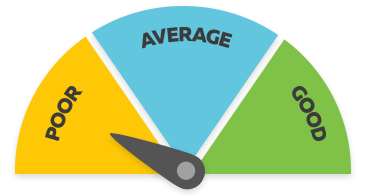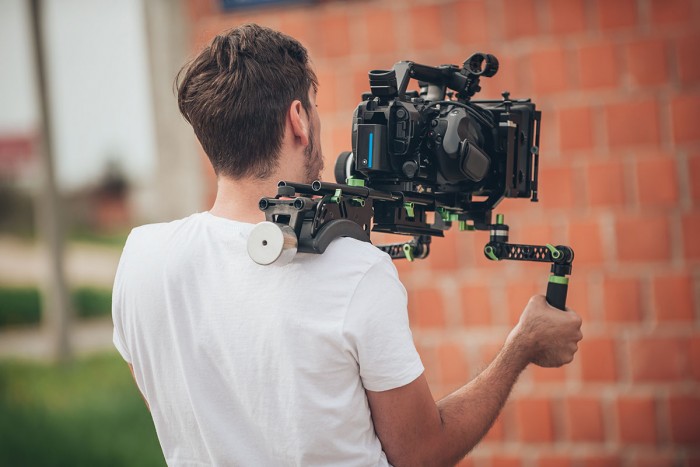Film/Television Camera Operator
Kaitango Whakaahua Whitiāhua/Pouaka Whakaata
Alternative titles for this job
Film and television camera operators use digital and film cameras to record events and scenes for television, movies and videos.
Pay
New film/television camera operators usually earn
$30-$50 per hour
Experienced film/television camera operators usually earn
$64-$120 per hour
Source: The Screen Industry Guild of Aotearoa New Zealand, 2018.
Job opportunities
Pay
Pay for film/television camera operators varies depending on experience and the type of production they are working on.
Recommended pay rates (based on 10-hour days) for camera operators on New Zealand feature films and television series:
- Video split operators, clapper/loaders and second assistants usually earn between $30 and $50 an hour.
- First assistants/focus pullers usually earn between $55 and $66 an hour.
- Experienced camera operators can earn between $64 and $120 an hour.
Pay rates for directors of photography are negotiable.
Source: The Screen Industry Guild of Aotearoa New Zealand, 2018.
(This information is a guide only. Find out more about the sources of our pay information)
What you will do
Film/television camera operators may do some or all of the following:
- carry and set up cameras and equipment such as lighting rigs and kits
- work with and follow the instructions of the director
- operate cameras to film or record the action
- keep the camera in focus.
Directors of photography may do some or all of the following:
- study scripts and interpret how scenes should look
- select suitable cameras and equipment
- decide on the location of cameras and lights
- direct camera and lighting crew during filming
- work with the director and editor during editing.
Skills and knowledge
Film/television camera operators need to have:
- technical skills for operating film and video cameras
- up-to-date knowledge of filming methods and equipment
- knowledge of camera exposure, focus, colour and lighting
- understanding of the filming and editing process.
Working conditions
Film/television camera operators:
- usually work 10-hour days, and may need to work evenings and weekends and be on call
- work in television and film studios, or outdoors on location, where they work in most weather conditions
- may travel to a wide range of locations in New Zealand and overseas.
What's the job really like?

Reece Baker
Camera Operator
What do you enjoy most about being a camera operator?
“It’s a really diverse job and each day is different. I get to visit new places, meet new people and learn heaps about what I’m shooting.
“It’s very creative too. So the creativity and the diversity are probably the two most enjoyable factors of the job.”
What is an obstacle you’ve had to overcome in your career so far?
“I guess the biggest obstacle, particularly when you are starting out, is being able to make a name for yourself.
“As a freelancer a lot of the work you get is because you know somebody. You’ve got to know people to get work. It’s not going to be handed to you. It’s important to make really good relationships with people in the industry that you work in.”
What advice would you give to an aspiring camera operator?
“Just practise and hone your skill. Even before I went to film school I had been mucking around with cameras since I was 12.
“You’ve also got to be really hungry for it. It’s a very small industry and it can be quite competitive. Don’t let people knock you back.”
Camera operator video
Yssy Smith talks about being a camera operator for live TV – 2.12 Min
I'm a studio camera operator. So I'm studio based, but there's also options to shoot in the field. The 3 main things I do for my job are camera operating, floor managing, and jib operating.
So this is the jib. This does most of the wide shots of most shows. So this is the control room. It's big, fancy and scary, kind of like a spaceship. These are all the panels up here. So you can see what cameras are where.
Because we work in a live TV environment, it's very fast paced. The director would sit here, they'd cut through the cameras with these buttons, they'd talk to me the whole time. They'd tell me "camera 2, go to a mid shot" and I'd go to a mid shot. Then they can see it up there.
I got into the film industry because I grew up around cameras. So naturally I was making films at the age of about 10. Just home movies with my friends.
I studied 2 years at film school. I did 2 diplomas, camera lighting and audio. The second in production research and documentary directing. I know a fair few people that didn't go to film school and are still in the industry and they're thriving.
So as a studio camera operator, I operate these cameras. It looks very chunky and big, but it's actually pretty small. This is the auto-cue, where the presenters read off. So this is where their script would be coming along. Whatever's on there, they'd read, typically.
Working in live TV can be very stressful at times. It's a high pressure, high intensity environment. You need to be very good at listening, very onto it. You need to make quick decisions.
Networking is crucial in this industry - it's very much an industry of who you know. Find people who are in the industry and just be very inquisitive. Just ask them questions because we are happy to answer them.
Entry requirements
There are no specific entry requirements to become a film/television camera operator. However, a relevant tertiary qualification in film, television or video production is useful.
Secondary education
There are no specific secondary education requirements to become a film or television camera operator. However, English, maths, media studies, digital technologies, drama and photography are useful.
Personal requirements
Film/television camera operators need to be:
- able to work well under pressure
- good at problem solving
- patient
- efficient and reliable
- good communicators with strong people skills.
Most camera operators are freelancers, and in a freelance world you live on the reputation of your last job. So you need to get on with the clients and production companies you work with.
Richard Lander
Television Camera Operator
Useful experience
Useful experience for film/television camera operators includes:
- photography
- working for a production company
- filmmaking
- video or television work.
Physical requirements
Film/television camera operators need to have a good level of fitness as they stand for extended periods and carry heavy camera equipment. They also need to have good hearing and normal colour vision.
Find out more about training
- The Screen Industry Guild of Aotearoa New Zealand
- (09) 889 9522 - info@screenguild.co.nz - www.screenguild.co.nz
What are the chances of getting a job?
Few opportunities for film/television camera operators
It is difficult to get work as a film/television camera operator in New Zealand because the entertainment industry is small.
Your chances of getting a job are best if you network regularly with industry contacts.
Most film industry professionals build a portfolio of previous work to showcase their professional skills.
According to the Census, 756 camera operators worked in New Zealand in 2018.
Types of employers varied
Camera operators may work independently, or for production companies or studios. They may work on:
- music videos
- television commercials
- corporate videos
- television productions
- web-based video clips
- short or feature films
- documentaries.
Most film and television production work happens during summer and is centred in Auckland and Wellington.
Sources
- Creative New Zealand, 'Arts Council lays framework for Phase 2 of Creative New Zealand’s COVID-19 response' (media release), 01 May 2020.
- Milne, M, cinematographer, careers.govt.nz interview, April 2018.
- Ministry of Culture and Heritage, ‘Support for Arts and Music Sector Recovery’ (media release), 29 May 2020.
- Morrison, D, general manager, Rocket Rentals, careers.govt.nz interview, April 2018.
- Radio New Zealand, ‘The Impact of COVID-19 on the NZ Film Industry’, 19 March 2020, (www.rnz.co.nz)
- Stats NZ, '2018 Census Data', 2019.
- Stats NZ, 'Screen Industry: 2016/17', April 2018, (www.stats.govt.nz).
(This information is a guide only. Find out more about the sources of our job opportunities information)
Progression and specialisations
Film/television camera operators usually specialise in working in either film or television in a number of roles, including:
- Second Assistant
- Second assistants process the shot footage or data and carry and set up gear such as lighting rigs.
- First Assistant/Focus Puller
- First assistants or focus pullers are in charge of the camera equipment and making sure the focus is correct.
- Digital Imaging Technician
- Digital imaging technicians are responsible for image quality control, on-set colour correction, and workflow (making sure footage is processed and gets where it needs to be) when a production uses digital cameras.
- Director of Photography
- Directors of photography organise production camera crews and make artistic and technical decisions about how scenes are shot.
Last updated 21 November 2023

